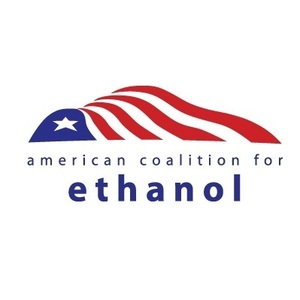ACE urges for a technology-neutral approach to infrastructure

April 15, 2021
BY American Coalition for Ethanol
As Congress considers infrastructure legislation, American Coalition for Ethanol CEO Brian Jennings urges lawmakers to take a technology-neutral approach when making investments to accelerate the nation’s transition to clean energy in the transportation sector and provides recommendations for ways Congress can spend a small fraction of the proposed $174 billion currently being discussed in support of the electric vehicle (EV) supply chain by capitalizing on ethanol’s ability to make near-and-long-term reductions in greenhouse gas (GHG) emissions.
In letters sent today to House and Senate leaders, along with key committee chairs and ranking members, Jennings pointed out that electric-only vehicles are just 0.3 percent of total vehicles, meaning 99.7 percent of vehicles in the U.S. use liquid fuel. “The bottom line is there are hundreds of millions more people driving vehicles capable of using clean fuels such as E15 and E85 today than any other alternative, and that will be the case for a very long time,” the letter stated. “If Congress wants to achieve immediate climate benefits from clean energy infrastructure, it should provide incentives for retailers to sell E15 and E85 and for automakers to resume the production of FFVs [flex fuel vehicles].”
Advertisement
Advertisement
The letter also cited how corn ethanol can achieve just as meaningful if not greater GHG reductions than EVs, with reference to research published from Harvard and Tufts that indicates average corn ethanol lifecycle GHG emissions are 50 percent cleaner than gasoline. “Further, ethanol is the only transportation energy source that can reach net-negative carbon intensity through continued advancements within ethanol facilities and on-farm practices in how biofuel crops are grown. As a result, ethanol provides near-term and long-term climate benefits,” Jennings wrote.
Jennings shared several ways Congress can unleash ethanol’s ability to rapidly decarbonize transportation fuel in the overall infrastructure package, some of which have zero cost for U.S. taxpayers or relate to clearing outdated roadblocks that currently restrict market access for clean fuels such as E15 and E85.
The recommendations include providing incentives for automakers to resume the production of FFVs and/or consumers to purchase them, support for E15 and E85 market access through the Renewable Fuel Infrastructure Investment and Market Expansion Act and/or modifying and extending the existing Alternative Refueling Property Credit, codifying Reid vapor pressure parity for all ethanol-gasoline blends greater than 10 percent, including the Adopt GREET Act, supporting funding for projects to help ethanol producers capture and sequester carbon, removing barriers to mid-level blends such as E30, and more.
Advertisement
Advertisement
Related Stories
President Trump on July 4 signed the “One Big Beautiful Bill Act.” The legislation extends and updates the 45Z credit and revives a tax credit benefiting small biodiesel producers but repeals several other bioenergy-related tax incentives.
CARB on June 27 announced amendments to the state’s LCFS regulations will take effect beginning on July 1. The amended regulations were approved by the agency in November 2024, but implementation was delayed due to regulatory clarity issues.
SAF Magazine and the Commercial Aviation Alternative Fuels Initiative announced the preliminary agenda for the North American SAF Conference and Expo, being held Sept. 22-24 at the Minneapolis Convention Center in Minneapolis, Minnesota.
Saipem has been awarded an EPC contract by Enilive for the expansion of the company’s biorefinery in Porto Marghera, near Venice. The project will boost total nameplate capacity and enable the production of SAF.
Global digital shipbuilder Incat Crowther announced on June 11 the company has been commissioned by Los Angeles operator Catalina Express to design a new low-emission, renewable diesel-powered passenger ferry.
Upcoming Events










